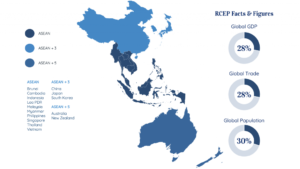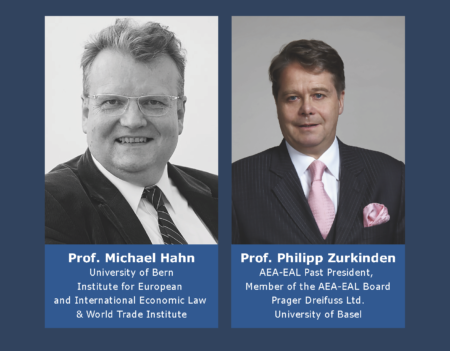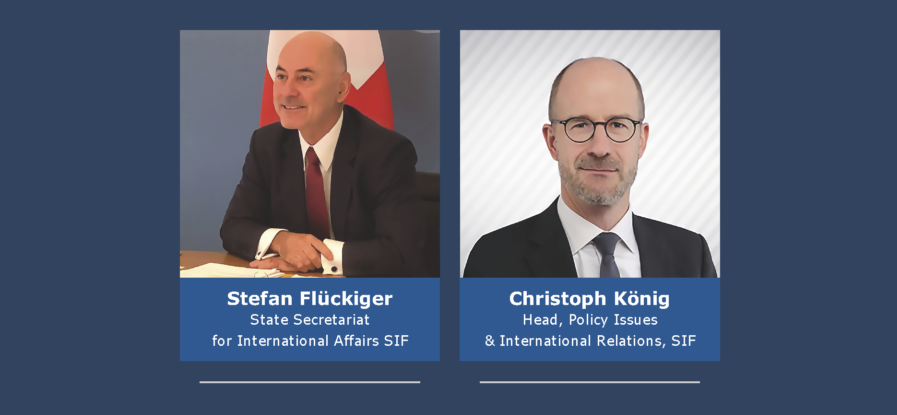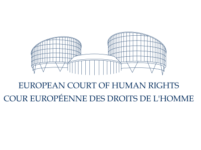 In order to promote animal welfare in the context of ritual slaughter, Member States may, without infringing the fundamental rights enshrined in the Charter, require a reversible stunning procedure which cannot result in the animal’s death.
In order to promote animal welfare in the context of ritual slaughter, Member States may, without infringing the fundamental rights enshrined in the Charter, require a reversible stunning procedure which cannot result in the animal’s death.
A decree of the Flemish Region (Belgium) of 7 July 2017 (‘the decree’), amending the Law on the protection and welfare of animals, regarding permitted methods of slaughtering animals, prohibits animals from being slaughtered without prior stunning, including in the case of slaughter prescribed by a religious rite. In the context of ritual slaughter, the decree provides for the use of reversible stunning which cannot result in the animal’s death.
The decree was challenged, inter alia, by several Jewish and Muslim associations, seeking its annulment in whole or in part. In their view, in not allowing Jewish and Muslim believers to obtain meat from animals slaughtered in accordance with their religious precepts, which preclude the reversible stunning technique, the decree infringes Regulation No 1099/2009 (1) and, therefore, prevents believers from practising their religion.
It is in that context that the Grondwettelijk Hof (Constitutional Court, Belgium) decided to make a reference to the Court of Justice for a preliminary ruling in order to ascertain, principally, whether EU law precludes legislation of a Member State which requires, in the context of ritual slaughter, a reversible stunning procedure which cannot result in the animal’s death.
This question leads the Court, for the third time (2), to seek a balance between freedom of religion, guaranteed by Article 10 of the Charter of Fundamental Rights of the European Union (‘the Charter’), and animal welfare, as set out in Article 13 TFEU and given specific expression to in Regulation No 1099/2009.
Findings of the Court
The Court, sitting as the Grand Chamber, observes, first of all, that the principle that an animal should be stunned prior to being killed, laid down by Regulation No 1099/2009, meets the main objective of the protection of animal welfare pursued by that regulation. In that regard, although the regulation (3) permits the practice of ritual slaughter in accordance with which an animal may be killed without first being stunned, that form of slaughter is, however, authorised only by way of derogation in the European Union and solely in order to ensure observance of freedom of religion. In addition, Member States may adopt national rules aimed at ensuring more extensive protection of animals at the time of killing than those contained in Regulation No 1099/2009 in relation to ritual slaughter (4). Thus, Regulation No 1099/2009 reflects the fact that the European Union and the Member States are to pay full regard to the welfare requirements of animals, while respecting the provisions and customs of the Member States relating in particular to religious rites. However, Regulation No 1099/2009 does not itself effect the necessary reconciliation between animal welfare and the freedom to manifest religion, but merely provides a framework for the reconciliation which Member States must achieve between those two values.
It follows that Regulation No 1099/2009 does not preclude Member States from imposing an obligation to stun animals prior to killing which also applies in the case of slaughter prescribed by religious rites, provided, however, that, in so doing, the Member States respect the fundamental rights enshrined in the Charter.
As regards, specifically, the question whether the decree respects those fundamental rights, the Court points out that ritual slaughter falls within the scope of the freedom to manifest religion, guaranteed in Article 10(1) of the Charter. By requiring, in the context of ritual slaughter, reversible stunning, contrary to the religious precepts of Jewish and Muslim believers, the decree thus entails a limitation on the exercise of the right of those believers to the freedom to manifest their religion.
In order to assess whether such a limitation is permissible, the Court finds, first of all, that the interference with the freedom to manifest religion resulting from the decree is indeed provided for by law and, moreover, respects the essence of Article 10 of the Charter, since it is limited to one aspect of the specific ritual act of slaughter, and that act of slaughter is not, by contrast, prohibited as such.
The Court then finds that that interference meets an objective of general interest recognised by the European Union, namely the promotion of animal welfare.
In its examination of the proportionality of the limitation, the Court concludes that the measures contained in the decree allow a fair balance to be struck between the importance attached to animal welfare and the freedom of Jewish and Muslim believers to manifest their religion. In that regard, it states, first, that the obligation to use reversible stunning is appropriate for achieving the objective of promoting animal welfare. Secondly, as regards the necessity of the interference, the Court emphasises that the EU legislature intended to give each Member State a broad discretion in the context of the need to reconcile the protection of the welfare of animals when they are killed and respect for the freedom to manifest religion. As it is, a scientific consensus has emerged that prior stunning is the optimal means of reducing the animal’s suffering at the time of killing. Thirdly, as regards the proportionality of that interference, the Court observes, first of all, that the Flemish legislature relied on scientific research and that it sought to give preference to the most up-to-date method of killing that is authorised. It points out, next, that that legislature forms part of an evolving societal and legislative context, which is characterised by an increasing awareness of the issue of animal welfare. Lastly, the Court finds that the decree neither prohibits nor hinders the putting into circulation of products of animal origin derived from animals which have undergone ritual slaughter, where those products originate in another Member State or in a non-Member State.
Accordingly, the Court holds that Regulation No 1099/2009, read in the light of Article 13 TFEU and Article 10(1) of the Charter, does not preclude legislation of a Member State which requires, in the context of ritual slaughter, a reversible stunning procedure which cannot result in the animal’s death.
In addition, the Court upholds the validity of Regulation No 1099/2009 (5) in the light of the principles of equality, non-discrimination and cultural, religious and linguistic diversity, as guaranteed by the Charter (6). The fact that Regulation No 1099/2009 authorises Member States to take measures such as compulsory stunning in the context of ritual slaughter, but contains no similar provision governing the killing of animals in the context of hunting and recreational fishing activities or during cultural or sporting events, is not contrary to those principles.
In that regard, the Court points out that cultural and sporting events result at most in a marginal production of meat which is not economically significant. Consequently, such events cannot reasonably be understood as a food production activity, which justifies their being treated differently from slaughtering. The Court draws the same conclusion with regard to hunting and recreational fishing activities. Those activities take place in a context where conditions for killing are very different from those employed for farmed animals.
Footnotes:
(1) Council Regulation (EC) No 1099/2009 of 24 September 2009 on the protection of animals at the time of killing (OJ 2009 L 303, p. 1).
(2) After the judgments of 29 May 2018, Liga van Moskeeën en Islamitische Organisaties Provincie Antwerpen and Others, C-426/16 (see Press Release No 69/18), and of 26 February 2019, Œuvre d’assistance aux bêtes d’abattoirs, C-497/17 (see Press release No 15/2019).
(3) Article 4(4) of Regulation No 1099/2009.
(4) Point (c) of the first subparagraph of Article 26(2) of Regulation No 1099/2009.
(5) In particular, point (c) of the first subparagraph of Article 26(2), concerning the power of Member States to adopt national rules aimed at ensuring more extensive protection of animals in the case of ritual slaughter.
(6) Articles 20, 21 and 22 of the Charter, respectively.
NOTE: A reference for a preliminary ruling allows the courts and tribunals of the Member States, in disputes which have been brought before them, to refer questions to the Court of Justice about the interpretation of European Union law or the validity of a European Union act. The Court of Justice does not decide the dispute itself. It is for the national court or tribunal to dispose of the case in accordance with the Court’s decision, which is similarly binding on other national courts or tribunals before which a similar issue is raised.
Unofficial document for media use, not binding on the Court of Justice. The full text of the judgment is published on the CURIA website on the day of delivery.
Source: www.curia.eu
 On January 12 the Presidents’ Roundtable took place with the participation of leaders of the international organization of lawyers, bar associations and law societies. The main topic of this event was Challenges and opportunities for the legal profession in the midst of COVID-19. Participants discussed the impact of the COVID-19 pandemic on the legal profession, how they responded to challenges and what long-lasting changes will influence lawyers and their professional practices in future. Speakers were presidents and high representatives of the International Union of Advocates (UIA), LAWASIA, American Bar Association (ABA), German Federal Bar (BRAK), French National Bar Council (CNB), The Law Society of England and Wales, Law Council of Australia and Paris Bar. AEA-EAL President Maria Ślązak touched on the issue of domestic violence, which raised dramatically in every country during the lockdown and imposed restrictions. She illustrated how lawyers, law firms and bars responded to the issue and which introduced practices and procedures should be maintained and developed in the future as domestic violence is still a growing issue. Further work of lawyers in this field is also our input into building a sustainable society in which everybody has a right to feel safe. The intervention of our President was very well received; in their opinion, the problem is not visible enough to authorities and the public and victims stay often alone, without any help.
On January 12 the Presidents’ Roundtable took place with the participation of leaders of the international organization of lawyers, bar associations and law societies. The main topic of this event was Challenges and opportunities for the legal profession in the midst of COVID-19. Participants discussed the impact of the COVID-19 pandemic on the legal profession, how they responded to challenges and what long-lasting changes will influence lawyers and their professional practices in future. Speakers were presidents and high representatives of the International Union of Advocates (UIA), LAWASIA, American Bar Association (ABA), German Federal Bar (BRAK), French National Bar Council (CNB), The Law Society of England and Wales, Law Council of Australia and Paris Bar. AEA-EAL President Maria Ślązak touched on the issue of domestic violence, which raised dramatically in every country during the lockdown and imposed restrictions. She illustrated how lawyers, law firms and bars responded to the issue and which introduced practices and procedures should be maintained and developed in the future as domestic violence is still a growing issue. Further work of lawyers in this field is also our input into building a sustainable society in which everybody has a right to feel safe. The intervention of our President was very well received; in their opinion, the problem is not visible enough to authorities and the public and victims stay often alone, without any help. On January 13 a Leadership Insights Session took place devoted to opportunities for Hong Kong in Regional Comprehensive Economic Partnership and Hong Kong’s role in the Greater Bay Area. In November 2020, the Chinese government signed the Regional Comprehensive Economic Partnership (“RCEP”) Agreement with countries of South-East Asia, as well as Japan, the Republic of Korea, Australia and New Zealand. RCEP seeks to establish clear and mutually advantageous rules to facilitate trade and investment. On the other hand, China develops so-called the Greater Bay Area – integrating the Guangdong-Hong Kong-Macao area, where Hong Kong lawyers wish to play a key role in building legal infrastructure and legal culture.
On January 13 a Leadership Insights Session took place devoted to opportunities for Hong Kong in Regional Comprehensive Economic Partnership and Hong Kong’s role in the Greater Bay Area. In November 2020, the Chinese government signed the Regional Comprehensive Economic Partnership (“RCEP”) Agreement with countries of South-East Asia, as well as Japan, the Republic of Korea, Australia and New Zealand. RCEP seeks to establish clear and mutually advantageous rules to facilitate trade and investment. On the other hand, China develops so-called the Greater Bay Area – integrating the Guangdong-Hong Kong-Macao area, where Hong Kong lawyers wish to play a key role in building legal infrastructure and legal culture.









 Dear Friends,
Dear Friends,
 On 11 December 2020 the AEA-EAL, together with the World Trade Institute in Berne and the Swiss law firm Prager Dreifuss Ltd, as a co-organiser, conducted a webinar about Financial Services in Europe in the Global Context Bridges and Ditches for Switzerland. The AEA-EAL and two co-organisers have, in the last two years, successfully launched annual conferences on market access. As this year, for well known reasons, such a conference could not be held, they organized a virtual conference. At this conference, which attracted an important number of people, we hosted Stefan Flückiger, Deputy State Secretary and Christoph König, Head Policy Issues & International Relations of the Swiss State Secretariat for international Finance (SIF). Their presentations gave an excellent overview on Switzerland as an important financial center and its possible ways on how to build „bridges” towards the EU and the UK. The two speakers also explained the global context of the financial services area and informed about future markets and sector growth and where future wealth and clients will be situated. They concluded that European markets will remain important, demographic growth in Asia be marginal and that the US will still matter for wealth and asset management. For Switzerland bilateral financial dialogues as well as multilateral relations, in particular the G20/OECD, will therefore also in the future be important tools to be present in the international financial services world.
On 11 December 2020 the AEA-EAL, together with the World Trade Institute in Berne and the Swiss law firm Prager Dreifuss Ltd, as a co-organiser, conducted a webinar about Financial Services in Europe in the Global Context Bridges and Ditches for Switzerland. The AEA-EAL and two co-organisers have, in the last two years, successfully launched annual conferences on market access. As this year, for well known reasons, such a conference could not be held, they organized a virtual conference. At this conference, which attracted an important number of people, we hosted Stefan Flückiger, Deputy State Secretary and Christoph König, Head Policy Issues & International Relations of the Swiss State Secretariat for international Finance (SIF). Their presentations gave an excellent overview on Switzerland as an important financial center and its possible ways on how to build „bridges” towards the EU and the UK. The two speakers also explained the global context of the financial services area and informed about future markets and sector growth and where future wealth and clients will be situated. They concluded that European markets will remain important, demographic growth in Asia be marginal and that the US will still matter for wealth and asset management. For Switzerland bilateral financial dialogues as well as multilateral relations, in particular the G20/OECD, will therefore also in the future be important tools to be present in the international financial services world.

 Information as to the ‘function’ of a cosmetic product which must appear on the product’s container and its packaging must inform consumers clearly as to that product’s purpose and method of use.
Information as to the ‘function’ of a cosmetic product which must appear on the product’s container and its packaging must inform consumers clearly as to that product’s purpose and method of use. State moratorium on evictions lawful in property acquirer’s case
State moratorium on evictions lawful in property acquirer’s case